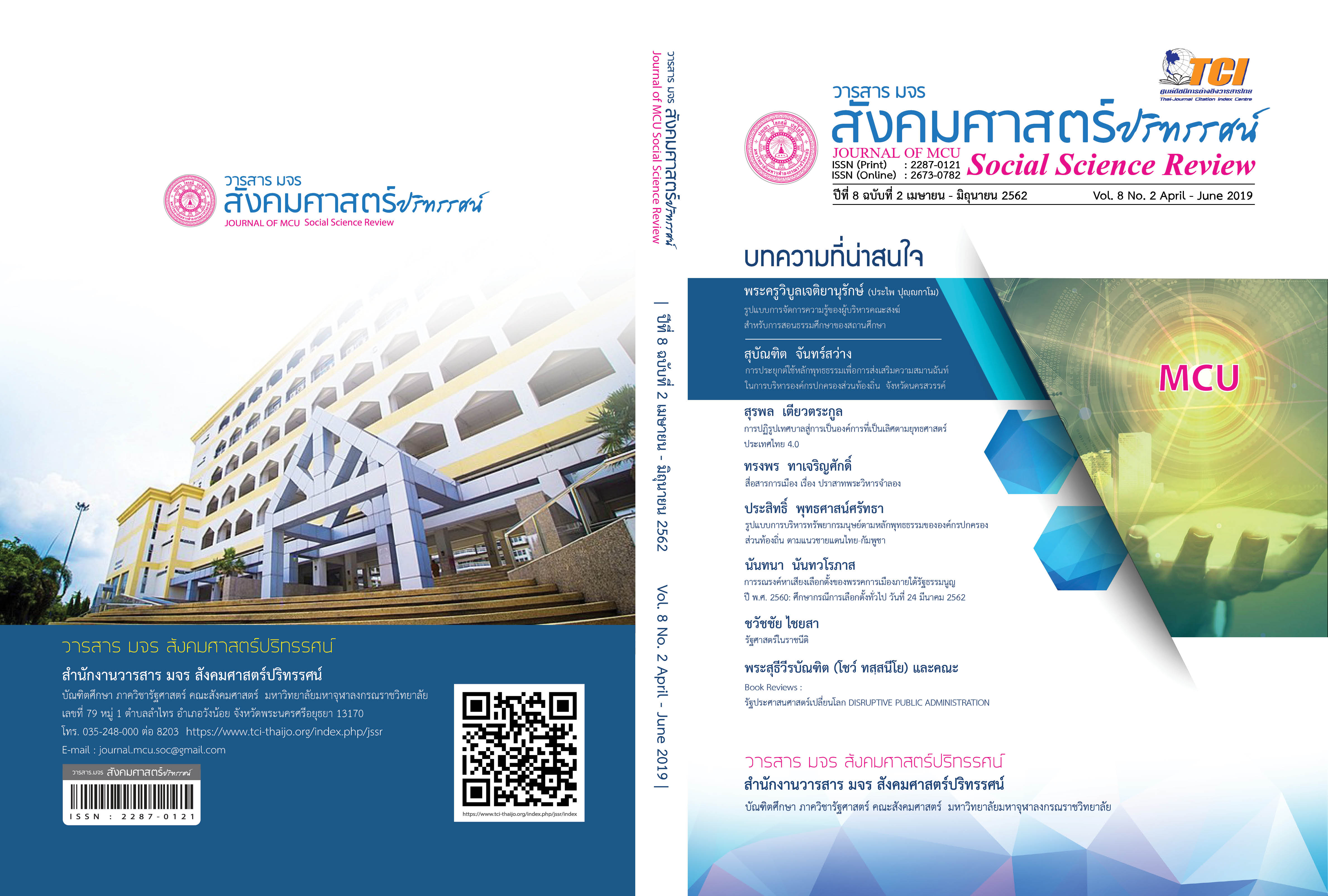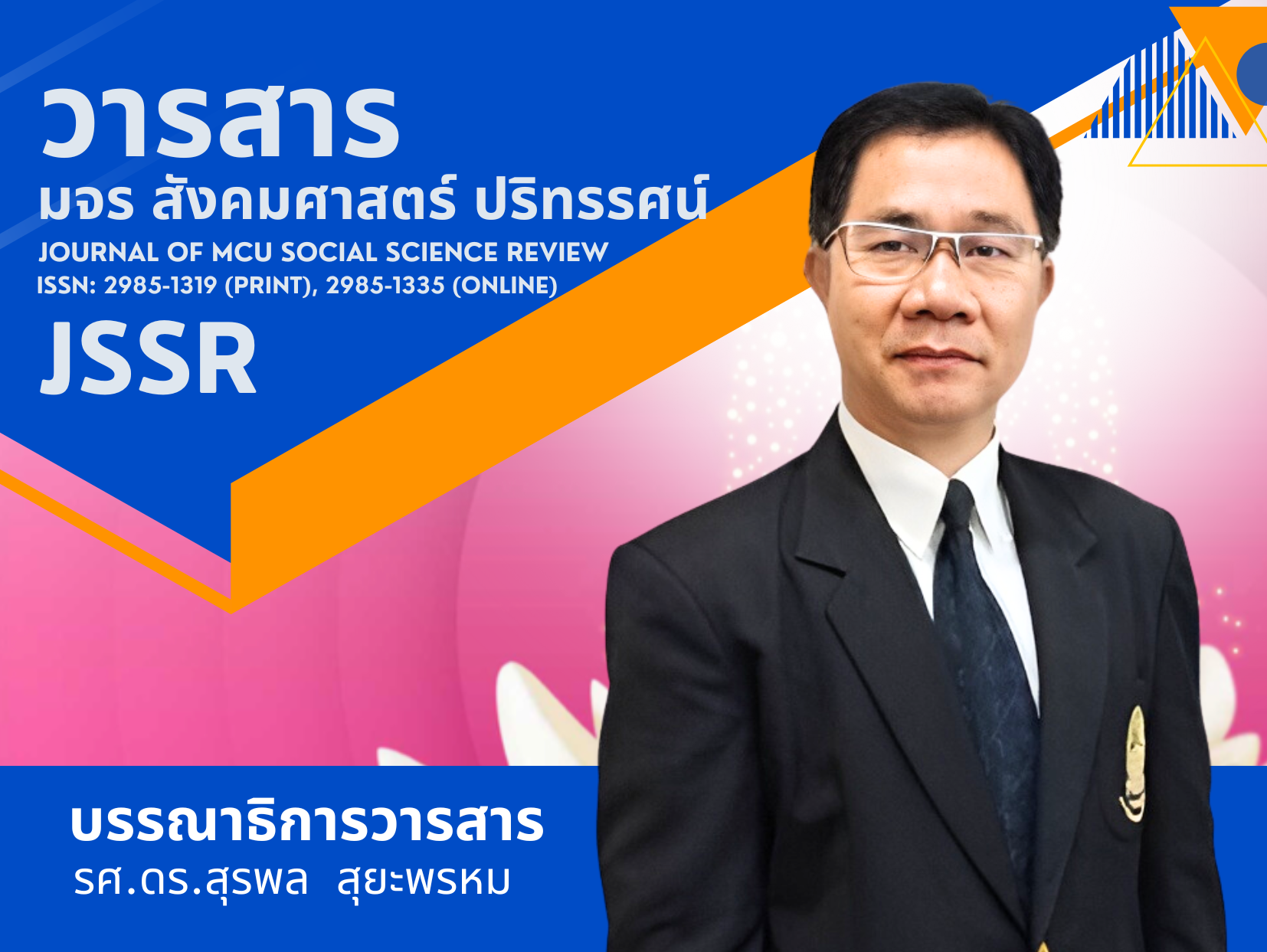A MODEL OF KNOWLEDGE MANAGEMENT ACCORDING TO BUDDHADHAMMA FOR PERSONEL DEVELOPMENT OF LOCAL ADMINISTRATIVE ORGANIZATIONS
Keywords:
Model. Knowledge Management,Personal Development of Local Administrative Oganizations,Buddha Dhamma.Abstract
The research objectives are 3: 1. To study the state of human resource development problems of local government organizations. 2. To study the processesknowledge management and the principles of Buddhism in personnel development. local administration organizations and 3. To present the model.Knowledge management in accordance with Buddhist principles for personnel development of local administrative organizations. A total of 26 individualized interviews were used. The focus group was 11 individuals / group. The data were analyzed using content analysis technique. And quantitative research. Data were collected from 385 samples. Data were analyzed by using basic statistics such as percentage. mean and standard deviation. Lack of experience.Lack of interest in corporate activities. Lack of information systems lack of motivation to seek additional knowledge For the application of the Buddhist doctrine.the practice (the precepts) comes in the form of budgetary policy and management structure.which leads to the management of mental knowledge (concentration). creating good attitudes and motivating. The interest in knowledge management. The knowledge (wisdom) is the knowledge that has gathered to apply to the work. The model of knowledge management in accordance with Buddhist principles for the development of personnel of local government organizations are four types. 1. The model of knowledge management in accordance with Buddhist principles in the organization. 2. The model of knowledge management in Buddhism. In terms of the person. 3. The knowledge management model in Buddhism in technology. 4. The model of knowledge management in Buddhism in the field of learning.
References
manages the knowledge in institution of Thai education. (Doctor of philosophy thesis, Chulalongkorn University).
Chakkris Suriyophakhan. (2011). The from and process of teacher
development in integrative Buddhist philosophy. (Doctor of
philosophy thesis, Mahachulalong kornrajavidyalaya
University).
Chalard Chantarsobat. (2005). The development of knowledge
management model Of community organization. (Doctor of
philosophy thesis, Thammasat University).
Nattawut Rojaritutikul. (2009). Organizational health and human
Resource management: A case study of state University.
(Doctor of public
administration thesis, National institute of development
administration).
Karl M. Wiig. (1993). Application of knowledge management in
public administration. (Knowledge research institute,
Arlington. Texas. U.S.A.)
Anurak Panyanuwat. (2006). Development of knowledge
management model and Learning process for sustainable
highland development. (Office of academic Services,
Chiangmai University).
Royal Academy. (2013). The royal institute of Thai dictionary 2554.
Bangkok: Nanmee Puplications.
Thomas H. (2000). Davenport and Laurence Prusak.
Workingknoeledge : How organization manage what they
know. 2nd edition. Boston. Massachusetts : Harvard business
school press.
Downloads
Published
How to Cite
Issue
Section
License
In order to conform the copyright law, all article authors must sign the consignment agreement to transfer the copyright to the Journal including the finally revised original articles. Besides, the article authors must declare that the articles will be printed in only the Journal of MCU Journal of Social Sciences. If there are pictures, tables or contents that were printed before, the article authors must receive permission from the authors in writing and show the evidence to the editor before the article is printed. If it does not conform to the set criteria, the editor will remove the article from the Journal without any exceptions.





